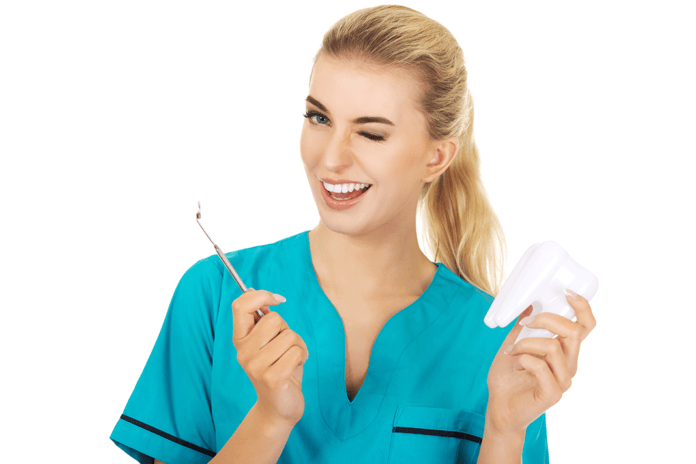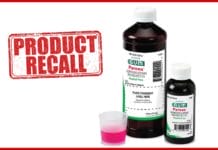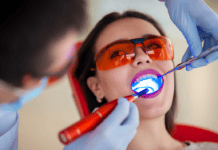Disclosure: We value transparency at Today’s RDH. This article is sponsored content from Wrigley Oral Healthcare Program as part of our sponsored partner program.
For many dental hygienists, the road to becoming a licensed professional may not have been filled with rainbows and unicorns. After completing college prerequisites, there’s applying to a hygiene program or even several. Once accepted, getting through the hygiene program isn’t always a walk in the park. Then boards, including finding a qualifying patient and studying every intricacy you learned during years of the hygiene program. At last, it’s on to the “real world.” The transition from hygiene school to practicing hygienist can be tough too. From the nerve-wracking working interviews to become accustomed to a new office, and everything in between. Finding an office to call your forever dental home can be a challenge in itself.
You worked very hard to become the dental hygienist you are, but sometimes the daily ins-and-outs of clinical practice can wear on you, just like any profession. Many hygienists enter the field with a desire to help people and most truly value the face time they get with patients and the educational aspects of their job. The mouth is connected to the body, after all, and prevention of disease is priceless. However, bringing patients to this understanding can be exhausting. Some hygienists may even feel underappreciated by the dentists they work for and not respected as the professionals and preventive specialists they are.
If this sounds like you, it might be time to take steps to revitalize your career. Remembering why you became a dental hygienist in the first place and reigniting the passion you once had is so important to avoid burnout and complacency. Even if you work in the best office and your patients are like family, sometimes your fire needs to be relit, or some logs need to be thrown on the smoldering coals. These are five ways you can reinvigorate your career as a dental hygienist.
1) Evaluate where you are now
If you’re in a rut, an important step in digging yourself out is figuring out what put you there in the first place. Is it the redundancy of your days at work? Do you want to do more with your career and clinical practice isn’t enough? Are you feeling burnt out because your current office isn’t the right fit for you?
Sometimes hygienists don’t realize it’s their office environment that’s bringing them down. No office is perfect, but if you dread going to work or have anxiety and are stressed out while you’re there, it’s time to make a list of the pros and cons of that workplace. If your office is chaotic, disorganized, or not following proper infection control, but your co-workers and doctor respect each other, and you work well as a team, then make an effort to see if you can help better the office through organization and updating protocols. This not only makes it a better workplace but also allows for top-notch patient care.
On the other hand, if your doctor doesn’t share the same patient standard of care as you, doesn’t give you enough time for appointments to properly and thoroughly treat patients, refuses to purchase hygiene instruments in a timely manner, refuses to supply you with working equipment, or refuses to pay you what you’re worth, it may be time to consider moving on. It’s always worth the effort to express your concerns to your doctor/boss, but if the things that are bringing you down don’t or won’t change, you’ve got to do what’s best for you. Figuring out what you can and cannot change, while still being happy in an office, is key.
Sometimes leaving an office, while difficult, can restore your love for dental hygiene. Finding a new office to call your dental home is easier said than done–it may take working at multiple offices to find the best fit for you, but once you do, it can change everything. Remember, you pursued dental hygiene as a profession because you love it; don’t let where you work take that away from you and make you resentful of your career choice. Once you’ve evaluated your current situation, it’s much easier to remedy your feelings and take the next steps to jumpstarting your career.
2) Never stop learning and expanding your knowledge
Adding to your skill set, continuing your education, or immersing yourself in something new can help you to move forward in your career. Here are a few ways to continue learning well after you’ve passed your boards:
Use resources available to you to help expand your knowledge by finding companies who support dental professionals. For example, the Wrigley Oral Healthcare Program recognizes, advocates for and celebrates dental hygienists and the important role we play in the office and in patients’ lives. Through a dedicated online channel on their website just for hygienists, you can find research and patient insights, tools, and resources to help elevate you in your profession. There’s also plenty of content available to help brighten your patients’ day as well, including care tips to encourage them to make the Daily Four part of their regular routine by highlighting the benefits of chewing sugarfree gum, along with brushing, cleaning interdentally, and rinsing so that patients can improve their overall oral health in an easy way. You’ll also find social media tools and graphics that are easy to share and a sign-up for the Wrigley Oral Healthcare Program to receive more information about patient care, upcoming conferences and other efforts to support dental hygienists.
Take continuing education courses: In addition to topics required by your state, take courses that actually interest you. If you’re curious about myofunctional therapy, take a CE course on it. If you feel you could be more knowledgeable about implant maintenance, then do some research. Learning and research don’t stop once you graduate the hygiene program and neither does the need for critical thinking. Even if CE credits aren’t offered, it doesn’t mean you can’t attend a class, watch a webinar, or read up on a subject to expand your knowledge. You might just find a topic that renews your interest and passion for dental hygiene.
Gain new certifications: Depending on your state’s allowable duties, gaining new certifications in local anesthesia, laser, or restorative dental hygiene will add to the treatment you can provide to patients and help break you out of any redundancy you may be feeling.
Further your degree: The thought of going back to school can be daunting, but it can help to restore your love for dental hygiene and possibly open doors to new opportunities.
3) Volunteer and give back to your community
While most patients are thankful for the treatment dental hygienists provide and are, for the most part, compliant with home care instructions and treatment recommendations, there are those we can educate until pigs fly, to no avail. This can be frustrating because it can feel like we, as preventive specialists, care more about their oral and overall health, than they do.
Giving back to those in need in your community, or abroad on mission trips, may help to combat these feelings and offer much-appreciated care. Volunteering not only warms your heart and makes you feel appreciated for the services and knowledge you provide, giving you a boost in morale, but it can be life-changing for someone in need. Giving happiness to others brings happiness to yourself.
There are many volunteer opportunities available in your community, including:
- Mission of Mercy
- Give Kids a Smile
- Local, non-profit clinics, including mobile dental clinics
- Oral Cancer Foundation
- Clinics in schools – many run with treatment solely provided by volunteer RDHs and doctors
You can also check out your state’s Board of Dentistry or Dental Hygiene Association website or contact them for volunteer opportunities in your area.
Volunteering also connects you with like-minded professionals. If you’re looking to make a career change, the connections you can make while volunteering can open doors for job opportunities. Doctors who volunteer are often more likely to hire dental hygienists who volunteer; it shows a common ground and a shared belief in patient care standards.
Another opportunity to give back, if your doctor and office are onboard, is taking a day to give free treatment to current servicemembers and veterans. I’m probably a bit partial to this idea, having a dad who was a Vietnam Veteran, but I feel you’d be hard-pressed to find a population of patients who are more deserving and appreciative of the recognition and support, than those who have served. Simply put, giving back and volunteering can be a really good morale booster.
4) Network and get involved in the hygiene community
I’m sure we’ve all been invited to a party, BBQ, or dinner, and before getting there, you didn’t really want to go. However, once you arrived, your mood lightened, you had a great time, and later, were glad you went. Other peoples’ positivity and energy are contagious. Just like this, and like volunteering, to re-spark your flame and love for dental hygiene, it helps to surround yourself with like-minded people who are filled with passion and drive.
Getting out of your bubble and connecting with dental professionals can open your eyes to new products, the most up-to-date protocols, and treatment recommendations, and new opportunities. This can spark your curiosity and re-energize you. Some networking opportunities include:
- National dental conferences
- Your state’s dental conference
- Dental hygiene conferences
- Local ADHA component meetings
- Local study club groups
Getting out there and networking and surrounding yourself with other dental professionals can add a log to your fire.
5) Know when to slow down, mix things up, or make a change
Sometimes to revitalize your career you need to consider the number of days you are working. Maybe five days per week is taking its toll and three or four days might be better. There’s always the option of cutting your work days at a certain office down and supplementing it with temping to change things up. If you work at a general dentistry office, perhaps working one day a week at a pediatric office would give you some variety.
Another option is to change your career path in its entirety. Here are career paths a dental hygienist can take beyond private practice:
- Dental hygiene educator: either clinical, didactic, or both*
- Public health: as a clinician or program coordinator
- Clinician in a prison system
- Expanded practice/independent practice: schools, assisted living facilities, hospitals
- Consultant: Practice management, OSHA/Infection control trainer
- CPR trainer
- Dental companies and manufacturers: work at booths, sales rep, clinical educator, research*
- Start your own business: mobile hygiene, temp agency, consultant, NBDHE board review
- Start a non-profit
- Write, speak, author a book
*Might require an advanced degree
For more dental hygiene professional roles, click here.
I encourage you to take charge of your career and not wait to make a change if you are feeling burnt out or in a rut. It might take some effort, but reinvigorating your passion for dental hygiene can make a world of difference not only in your professional life but for your overall happiness. You and your happiness are worth it!











